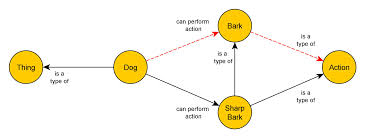
记忆方法
为了记忆“intransitive”这个单词,可以采用以下方法:
联想记忆法:将“in”理解为“不”,“trans”看作“跨过”,“itive”表示“能够”,结合这些前缀和后缀,想象“intransitive”意味着一个动词(动作)不能跨越或影响到其他对象,即它是一个不直接及物(没有直接宾语)的动词。例如,动词“fall”就是“intransitive”,因为它不能直接作用于其他物体。
联想记忆法:将“in”理解为“不”,“trans”看作“跨过”,“itive”表示“能够”,结合这些前缀和后缀,想象“intransitive”意味着一个动词(动作)不能跨越或影响到其他对象,即它是一个不直接及物(没有直接宾语)的动词。例如,动词“fall”就是“intransitive”,因为它不能直接作用于其他物体。
以上内容由AI生成, 仅供参考和借鉴
中文词源
intransitive 不及物的
in-,不,非,transitive,及物的。
英语词源
- intransitive (adj.)
- 1610s, from Late Latin intransitivus "not passing over" (to another person), Priscian's term, from Latin in- "not" (see in- (1)) + transitivus "that may pass over," from transire "to pass over" (see transitive).
权威例句
- 1. Verbs that do not take object are called intransitive verbs.
- 不带宾语的动词称为不及物动词.
- 2. The noun is followed by an intransitive verb.
- 这个名词后接不及物动词.
- 3. In this dictionary the mark'vi'shows an intransitive verb.
- 在本词典中,符号'vi'表示不及物动词.
- 4. The verbs were subdivided into transitive and intransitive categories.
- 动词被再分为及物动词和不及物动词.
- 5. In this dictionary the mark shows an intransitive verb.
- 在本词典中,[I] 符号表示不及物动词.